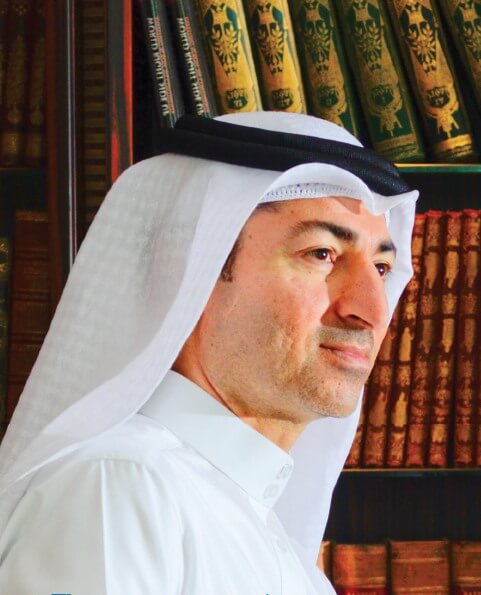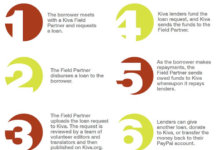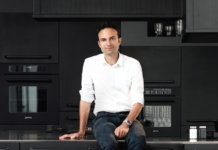Interview with Mohammed Abdul Rahim Al Fahim, CEO of Paris Gallery Group of Companies, UAE
Family businesses require corporate governance to ensure transparency and accountability, but most of all continuity. Everyone knows it, yet few families put it in place. Those who undergo the process of implementing corporate and family governance systems know that while the end goal is incredibly beneficial, the journey can be fraught with challenges of both an organisational and emotional nature. For Mohammed Abdul Rahim Al Fahim, CEO of Paris Gallery Group of Companies, the process of instating corporate governance in the family business has been rewarding yet rife with obstacles. The Paris Gallery Group of Companies runs one of the largest luxury retail chains in the Middle East, which includes over 80 stores across the GCC, representing over 500 international luxury brands. Looking at the group today, the world sees a well-run and efficient business operation that emphasises the importance of transparency and accountability. Tharawat magazine spoke to Mohammed Abdul Rahim Al Fahim, a man refreshingly frank about the pains and gains of implementing corporate governance in the family business.
How Mohammed Abdul Rahim Al Fahim joined the business
When Mohammed Abdul Rahim Al Fahim was a boy, he wanted to become a fighter pilot. A few years later, he decided he wanted to be a doctor instead. Little did he know then that he would one day head his family’s multinational business. We sit opposite the CEO of the Paris Gallery Group in Dubai’s Capital Club and ask him how he came to shoulder such a great responsibility. “Even when I was very young, I loved being part of the family business, and I felt a great sense of pride being able to serve customers in our store,” says Al Fahim, smiling, as he leans back into his chair. “It was clear that everyone wanted to be part of the business in some way. During lunch hour at school, I often made a dash to the store and interacted with customers, some of whom became our friends.”
When it was time to decide on his university studies, Mohammed Abdul Rahim Al Fahim’s family urged him to choose something that would someday enable him to join the business. He now reflects on this turn of events with satisfaction: “I graduated in Business Administration, minoring in marketing. When I returned home my parents wanted me to join the family business, but I wanted to gain some experience working in other corporations first. I also had the desire to start my own business.”
After pursuing a few of his own corporate interests, he finally agreed to devote himself to the family business and was put in charge of the company’s operations in Saudi Arabia. “The environment in Saudi Arabia was very different from what I was accustomed to,” confesses Al Fahim, “but the feeling of being responsible for the family business was what took over. I don’t think it was the best way for me to get started. Today, we are well prepared to equip the future generations for the responsibilities they will shoulder once they join the business. With the company on a sustainable path, steadily and stably growing over the years, the responsibilities are also likely to increase, and members should be well prepared to shoulder them. The governance system allows for the young generation to grow gradually and steadily through the ranks of the company.”
The Big Change
Mohammed Abdul Rahim Al Fahim recollects the crucial moment in the family’s business history when they decided to consolidate all their activities under a unified holding structure, today known as Paris Gallery Group of Companies, as it has provided him with one of the greatest lessons of his career: “As a child, you believe that your family is the whole world. You belong to the family and the family belongs to you. In a family business, sometimes that feeling persists and tends to come before anything else. Sometimes this becomes a barrier, so much so that we fail to question or contemplate from every angle the problems that arise within the business.” Al Fahim looks out of the window for a moment before he continues, “And that was the case with us. Nobody would talk about what could go wrong when we pulled our assets together, and this caused me a lot of concern at the time.”
He reminisces on the difficult questions the proposed family partnership raised. “There were many questions that crossed my mind, and my fears persisted until everything was clearly laid out in black and white.” Today, Al Fahim feels that he made the right decision. “I am relieved that we put everything down in writing. It defined each person’s space and position, responsibilities, contributions, and the percentage of their ownership. Putting all our efforts and resources together and working towards a common goal was the right thing to do, however, defining the motives and each person’s contribution was very important.”
The wisdom of this decision has since proven its worth many times over explains Mohammed Abdul Rahim Al Fahim, “It’s obvious that problems and disagreements will arise when there isn’t a clearly defined structure. We had to have both: structure and transparency. No one was doing anyone any favours. Everyone was just doing what they were expected to in their given roles, meeting goals and seeing the company grow. We had to do away with the hassle that comes with the ’take it for granted’ attitude of family members. There were so many things at stake, and nothing could be taken lightly.” Al Fahim’s statement rings true in the face of family businesses around the world facing problems of accountability due to lacking agreement and structure.
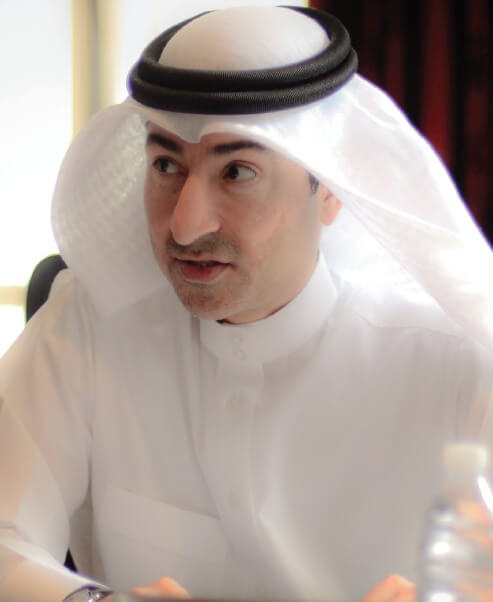
“I do not believe, however, that everyone understood everything they agreed upon in this partnership.” he highlights. “Some family members certainly didn’t see the whole picture and didn’t understand the responsibilities they would have to shoulder and the sacrifices they would have to make for such a combined venture to succeed. They just saw themselves as family members who were entitled to the business and its assets. We put in place a board of directors, which consisted of my brothers and me. My father didn’t want to be a member. He wanted to leave it to us because he trusted us.”
Growing Pains
The Al Fahim family’s holding structure was put in place in time to benefit from Dubai’s incredible growth in recent years. The emirate’s expansion impacted its retail sector exponentially. “Everything was good for us at that time,” explains Mohammed Abdul Rahim Al Fahim, “and our business grew. Our concept was successful. We were attractive to the local community and the tourists, and so we expanded. But ten years on, we were faced with a long list of issues relating to decision-making and respective authority. We didn’t have a consensus in our decision-making model on account of which conflict was brewing internally.”
In spite of the family’s valiant efforts to quietly set aside differences, notions of conflict began to burden not only the family but also the business. “When a company grows to a certain size, a proper governance structure to sustain it is inevitable, and the solution was corporate governance. If you avoid structuring, conflicts will intensify, as they did for us. Random and irrational decision-making processes had to be eliminated and habits had to be broken. We also had to do away with emotions that interfered with business matters,” states Mohammed Abdul Rahim Al Fahim emphatically.
Al Fahim further relates that it is far easier to recognise the need for structure than it is to bring it about. “There are emotions that run high in family businesses, and the attempt to separate that from running the business is not easy,” Al Fahim says frankly. “But on the other hand if you fail to do so it can affect the business negatively. This becomes especially clear when it comes to inducting the next generation, giving them a role to play in the organisation. If you make the decision of hiring your son or daughter into a position without them having the necessary qualification and experience, you will end up hurting the company. I say this from experience.” Al Fahim underlines that competence is the only factor that should be considered when getting the next generation involved. “There’s no doubt that I want to see my children join the business,” admits Al Fahim, “But in a way through which they are nurtured into it by giving them responsibilities they can shoulder. You have to consider the consequences for the business at large, which includes employees and stakeholders. Growth should have a ground-up approach.”
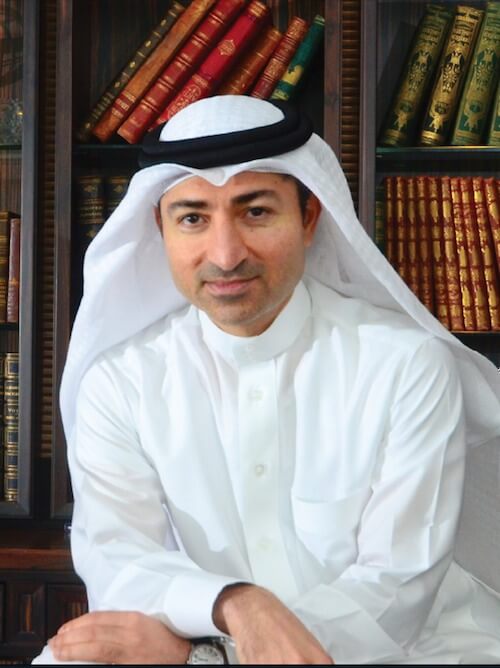
Corporate Governance to the Rescue
It was in 2006 when conflicts were at their peak that the family appointed Mohammed Abdul Rahim Al Fahim as the CEO of Paris Gallery Group of Companies. “They were sure that I could grow the company and chart a sustainable path for it. I took it as a challenge, and an adventurous and eventful journey began for me,” Al Fahim humbly describes. He went on to implement a corporate governance structure that put policies and systems in place, making sure that they would not stifle the creativity of anyone in the organisation.
The moment that there was a policies for everything, his popularity in the family waned since the new rules demanded inevitable sacrifices from everyone. “The moment you take any decision in the interest of the company, in spite of the fact that everyone has a stake in the company, the compromises that are to be made on account of the decision invariably bring emotions to the fore.”
Al Fahim began the process by making sure that the governance structure would capture the majority of the wishes of family members, and so a survey was conducted. “We asked everybody what their ambitions were and what they wanted in life. Then we asked them what they expected from the company. Interestingly there were many incongruities between what they wanted in their lives and what they wanted from the business,” he details. A family member’s personal and professional ambitions lacking congruence is not unusual. But, Mohammed Abdul Rahim Al Fahim points out that this does not mean that the business can be used to satisfy personal needs. “Everybody wanted the company to be their house, their playground. So company protocols had to be put in place. I made it a point to ask everyone if they knew what corporate governance meant. It is clear today that some of them didn’t.”
Testing Times
With the governance system in place and professionalism reigning high within the business, the family still faced many challenges in handling internal relationships. “The governance was in place. Everybody approved it. But did everybody understand what they had agreed upon? Probably not. We brought in family members as future hopefuls and made them shareholders to foster a sense of responsibility. Extensive training was given to everyone to learn how to work within this corporate framework,” says Al Fahim.
“Any problems we face today are addressed through the governance, and our journey continues with those of the family who believe in us. A lot of effort and sacrifices have gone into it, but at least today we know where every dirham goes and where it comes from. We have transparency and control,” states Al Fahim. “Take for instance the bottom-up approach to investment decisions: Even though legally I can overrule a decision made by our investment committee, I would not do that. If I want to reverse any decision, I have to first convince them.” By himself setting an example, Al Fahim reinforces the importance for family businesses to shift away from the patriarchal leadership style to one that is driven by the policies and protocols set for proper corporate governance.
“The most important added value that corporate governance has provided us with is the fact that everyone is part of the business plan and that policies apply across different departments. The policy makers are from related departments and approved by an audit committee. Policies are updated every quarter,” Al Fahim says. Every procedure at the Paris Gallery Group of Companies, down to travel expenses, is today regulated by policies. “Even if I, as the CEO of Paris Gallery Group of Companies, want to travel business class, I have to pay the difference as my travel allowance only allows for economy,” he says, laughing.
On a Personal Level
Mohammed Abdul Rahim Al Fahim has undoubtedly been through the difficulties that one will encounter when putting in place corporate governance, departing from the often flawed family-run business model. When asked whether he would do it all again in the same way, he hesitates, and takes a moment before answering. “One of the greatest regrets I have is that it took me too long to convince the senior management of the journey ahead. That was a waste of time. It reached the point where we had to let some senior managers go for refusing to accept the accountability that comes with the role. I should have acted sooner on that,” he sighs. “When you go through this process, you get to know people for who they really are. I was surprised to see that there were many in the company who lacked principles, some of them my own family members, but fortunately there were others in the family who were guided by principles and were supportive of the overall plan. Being a family business doesn’t necessarily mean that all members have the same principles or share the same values. There are always different perspectives.”
[ms-protect-content id=”4069, 4129″]
Something Mohammed Abdul Rahim Al Fahim would have loved to do retrospectively is shorten the amount of time it took him to implement the governance structure. “My goal was to put in place the structure within 18 months,” he explains. “Instead, it took us the better part of four years. This was mostly because of what I mentioned earlier; I delayed in recognising the people who were reluctant to take up responsibility for their decisions and actions, who tried to sabotage the process fast enough.”
All in all, Mohammed Abdul Rahim Al Fahim feels strongly that things could have been worse had this process been started later, and he does not regret it in spite of the sacrifice it demanded from everyone involved, including himself. “Other families have not been this lucky, and their businesses collapsed because the problems were not addressed in time. I was ready for the position I was appointed to, and the company was ready for the structuring. Was it difficult? Yes. Would we do it again? Absolutely!”
Passing on the Wisdom
Mohammed Abdul Rahim Al Fahim has learnt much from this trying experience and is adamant about sharing it with others. He says, “I try to openly share my experiences, hoping that I can add value to those who are in the situation we were in. However, each family business is different, and will therefore face different challenges. Generally, I can say that the more the family is of one belief and can transfer that belief to its employees, the easier the formulation and implementation of governance will be.”
When finally asked whether he thinks that things will become easier with the governance structure in place, Mohammed Abdul Rahim Al Fahim’s eyes narrow a little with concentration. “The challenges will be different in the future, and also bigger. We have just learnt how to harmoniously communicate within our own generation, and now we are faced with the next. This new generation is fundamentally different in terms of values and beliefs, and they have their own set of ambitions. We will have a much larger number of family members joining the business, and we need to make sure we evolve to accommodate them,” opines Al Fahim.
While painfully honest about the challenges he has faced when putting in place corporate governance in his family’s business, Mohammed Abdul Rahim Al Fahim has by no means become resentful. On the contrary, he leaves us with one of his most fundamental beliefs; a creed which has served him well, and in many ways defines his leadership style: “If you know yourself and you believe in your own set of values and principles, practising them, you will be happy as a human being and enjoy transferring that happiness to others.”
Tharawat Magazine, Issue 20, 2013
[/ms-protect-content]


